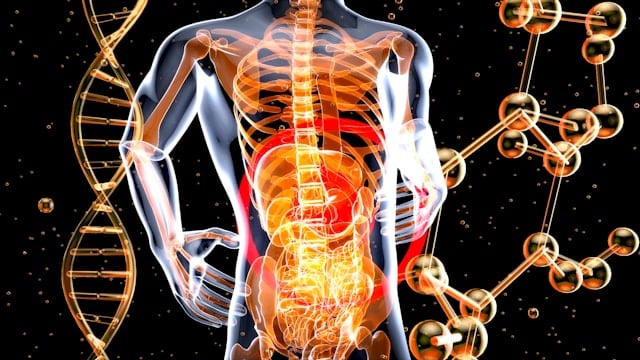10 Signs Your Body Might Be Telling You to Cut Back on Caffeine
Caffeine is one of the most widely consumed stimulants on the planet.
Whether it’s through your morning cup of coffee, your favorite black tea, that midday soda, or an energy drink before a workout, it’s become a nearly inseparable part of daily life.
When consumed in moderation, caffeine can increase alertness, boost mood, and even enhance cognitive performance. But like many substances that offer quick energy, too much caffeine can begin to work against you, subtly interfering with your body’s natural balance.
If you’ve been feeling “off” lately and can’t quite pinpoint why, it may be your body sending signals that it’s time to reconsider your caffeine habits.
Below are ten important warning signs that suggest you may be consuming more caffeine than your system can comfortably handle.
1. Frequent or Persistent Headaches

While caffeine is known for its ability to temporarily relieve headache pain—especially in medications—it can also cause what’s known as rebound headaches when consumed too frequently. If you find yourself needing caffeine just to stave off a headache, that could be a sign of growing dependence. Moreover, caffeine’s diuretic nature can lead to dehydration, another common headache trigger.
2. Muscle Twitching and Involuntary Spasms

A jittery hand or a twitching eyelid might not seem serious at first, but these small involuntary movements can be a signal that your nervous system is overstimulated. High levels of caffeine stimulate muscle contractions and can deplete key electrolytes such as magnesium and potassium, which are vital for normal muscle function. Over time, this imbalance can lead to muscle cramps, restlessness, or persistent twitching in different parts of the body.
3. Heightened Anxiety or Irritability

Caffeine acts by blocking the effects of adenosine, a neurotransmitter responsible for promoting relaxation and sleep. While this keeps you alert, it also amplifies stress responses, leading to racing thoughts, nervous energy, and irritability in people who are sensitive or over-caffeinated. If your heart starts pounding after just one cup of coffee, or you feel anxious for no clear reason, your caffeine intake could be a contributing factor.
4. Stomach Issues or Digestive Disruption

For those with sensitive stomachs, caffeine can be particularly rough. It can increase stomach acid production, leading to symptoms like heartburn, acid reflux, bloating, or nausea. Over time, too much caffeine may even contribute to gastritis or irritation of the gastrointestinal lining. If your morning brew is followed by stomach discomfort, it might be time to assess how much you’re consuming.
5. Dry, Flaky Scalp and Dehydrated Skin

Caffeine’s diuretic properties may lead to frequent urination, resulting in fluid loss and mild dehydration. One visible manifestation of this is dry, itchy skin—or more noticeably, a flaky scalp. If you notice unusual dryness, especially in combination with other symptoms, your caffeine habit could be playing a role.
6. Restless Legs or Trouble Keeping Still at Night

Restless Legs Syndrome (RLS) is a condition marked by an irresistible urge to move the legs, often accompanied by tingling or uncomfortable sensations—typically worsening at night. Because caffeine stimulates the central nervous system, it may exacerbate RLS symptoms or even trigger episodes in those susceptible to the condition. Reducing intake can help lessen its intensity.
7. Sudden Energy Crashes in the Afternoon

Caffeine delivers a quick spike of alertness—but what goes up must come down. After the effects wear off, many people experience a noticeable energy slump, leading to fatigue, lack of concentration, and mood dips. This rollercoaster can prompt a vicious cycle of increased caffeine dependence to “push through” the crash—only to crash again later.
8. Inflammation or Puffiness

Though not as widely discussed, excess caffeine can sometimes cause inflammation in sensitive individuals. Some people report swelling in the hands, feet, or face—possibly linked to mild allergic responses or the body’s reaction to chronic overstimulation. If such swelling appears without another clear cause, consider evaluating your caffeine consumption as a possible factor.
9. Difficulty Falling or Staying Asleep

Even if consumed in the afternoon, caffeine can linger in your system for up to 8 to 10 hours. This lingering effect can interfere with deep sleep and lead to insomnia, especially for individuals who are more sensitive to stimulants. If you find yourself staring at the ceiling at night despite being exhausted, caffeine could be interfering with your natural sleep-wake rhythm.
10. Elevated Heart Rate or Blood Pressure

One of caffeine’s most noticeable effects is an increase in heart rate and blood pressure, due to its stimulation of the heart and central nervous system.
For those already managing hypertension or heart conditions, this can pose a real concern. Even in healthy individuals, persistent overuse may increase cardiovascular strain over time.
Final Thoughts: Time to Rethink Your Cup?
Caffeine can be a useful tool—it sharpens the mind, improves alertness, and can even elevate your mood. But when consumed excessively or without awareness, it can do more harm than good. From sleep disruption and anxiety to physical symptoms like headaches, twitches, and inflammation, the body has its own language—and it’s always speaking.
If you’ve recognized any of these ten warning signs in your own life, it might be time to pause and reevaluate your caffeine intake. Consider cutting back gradually, staying hydrated, and exploring other energy-boosting alternatives such as more sleep, light exercise, or nutrient-rich snacks.
Your body is your best compass. Learn to listen to it—and it will reward you with better balance, improved well-being, and sustained vitality without relying too heavily on caffeine.
